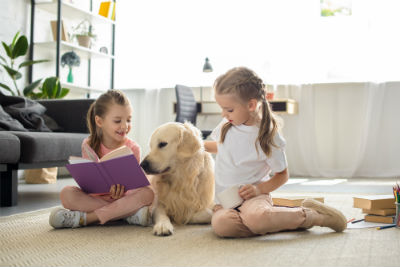
Divorce is a messy, emotional process. It’s difficult to watch your parents break up and go their separate ways. But it happens all the time. Nearly 40 percent of marriages end in divorce. What does this mean for children? Divorce has many potential effects on kids, including loss of security, financial hardship, social stigma, and much more.
This post will discuss five common effects of divorce on children from a child-centric perspective and how you can help them cope with these effects.
1. Change in family dynamics
A divorce lawyer in Columbia, Maryland, notes that children often feel like they are losing half of their family when their parents’ divorce. The loss is not just the result of living with one parent instead of two, but also in terms of relationships within the extended family unit and interactions that children have with friends, neighbors, teachers, and other individuals who shape a child’s life.
Divorce changes many aspects of family dynamics, not just the number of parents in a child’s life. Parents may find themselves growing apart after divorce and gradually shift their focus to individual parenting needs instead of what is best for the entire family unit. This can lead to children feeling like they are “caught in the middle” or that each parent only cares about his or her own needs instead of theirs.
To help your kids cope:
- It’s vital to keep the family unit intact as much as possible after divorce
- Make every effort to continue holiday traditions that you established before your relationship ended
- Maintain open lines of communication between parents so children do not feel “pulled” in different directions or pushed into taking sides with either parent.
2. Loss of sense of belonging
A child going through a divorce may feel as if they have lost their sense of belonging. Children often experience family breakup in terms of either rejection or abandonment and thus suffer from low self-esteem. In addition, many children who go through a divorce report feeling disconnected from their other parents and family members. Children need stability and support after a family breaks up: this is why it’s crucial for them to feel secure within the family.
While some children may feel isolated, others might be tempted to experiment with drugs or alcohol to cope with the pain of their parents’ separation and divorce. To help kids adjust to divorce, parents can spend more time with them and make plans for the future. Additionally, you should establish routines that include both parents in some way. Spending quality time together is essential because it allows children to express themselves freely without fear or judgment.
3. Difficulty with schoolwork, friends, and social life
Schoolwork is one of the biggest challenges kids face after divorce. A third of students from divorced families reported experiencing academic problems at least once in their life. Friendships are another casualty of divorce. Kids from divorced families are twice as likely to have their best friends be someone of the opposite sex and twice as likely to only have one close friend at all compared to kids who grew up in intact families.
The social life that children had before is also threatened by divorce because they often feel embarrassed about not having both parents living together. Divorce also makes it harder for children to develop a sense of trust and security because they can’t make long-term plans with their parents without knowing if the family will stay intact or get divorced again. To help your kids overcome these challenges, try to be available for them and reassure them that you’ll always love them.
4. Anxiety about the future
Children who go through divorce often worry about the future. They may be afraid that they will never feel safe or loved again, and this anxiety can lead to difficulties in their lives and problems with depression and social withdrawal. Not knowing what the future holds can also make children feel stressed. This is especially true if they are not given the information that they want about their parents’ plans for divorce and who will live where after it happens.
Divorce is hard for anyone, but children can be especially vulnerable. Parents should try to reassure their kids that they are loved and will always have a good life with them no matter what happens in the future. Help your child find ways to manage his or her anxiety about the unknown by encouraging them to create wish lists of things they want, draw pictures about the future, or write stories down.
5. Fear of abandonment by both parents post-divorce
Children may also feel as if both parents abandoned them. This fear can be exacerbated post-divorce, as the child is aware of their parent’s new partner and often sees them spending time with that person instead of them. This can make the child feel as if they are no longer a
Children may also fear that any time spent with one or both parents will be limited after divorce because they see this in their friends’ families who have experienced a divorce. This causes them to dread spending time with one or both parents, leading to increased stress. Encourage your kids to talk to you about any fears they have and do your best to work through these and spend time with them.
Help your kids through this difficult moment
In conclusion, divorce is a difficult time for children, but there are ways to help them. Don’t forget that it isn’t your child’s fault and you need to make sure they know how important they are during this period of their life. Ensure they feel comfortable talking to you anytime and stay patient. Remember that you are not alone, and other people have been through the same situation, so don’t hesitate to seek help and reassurance.
Story by Shawn Barton










